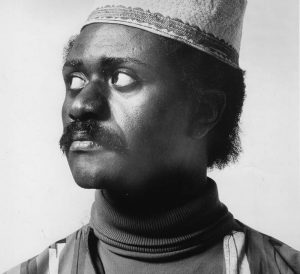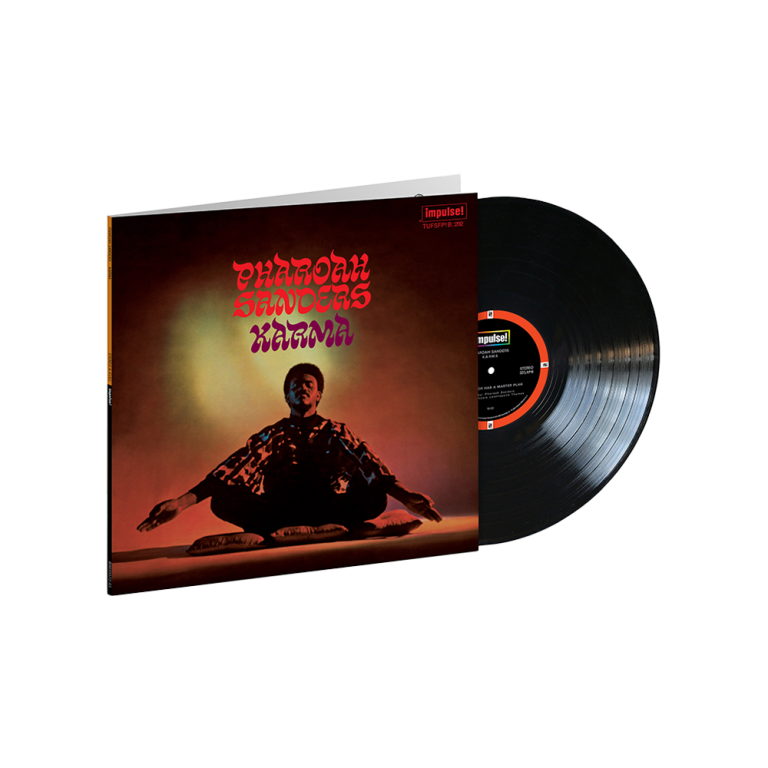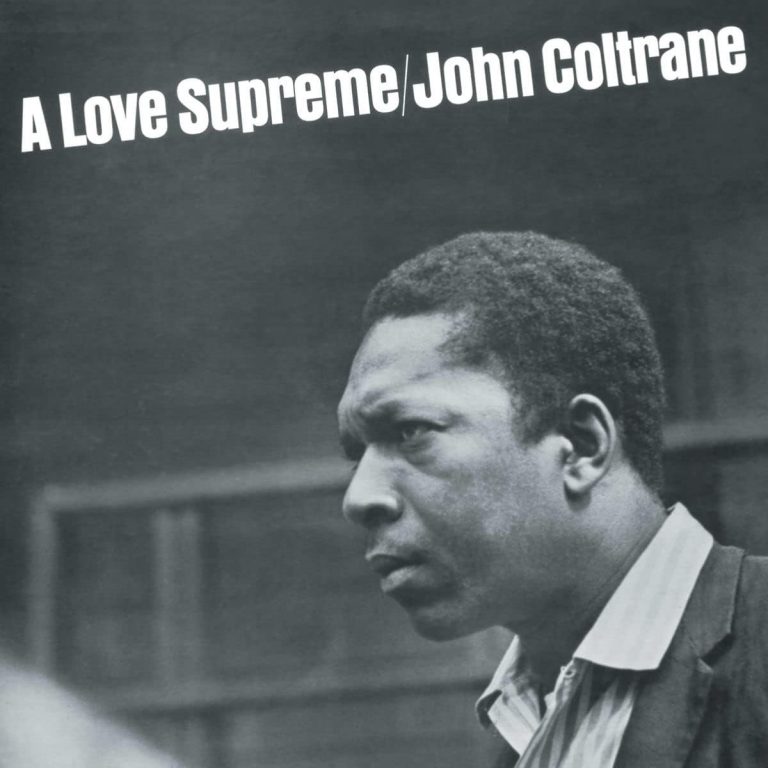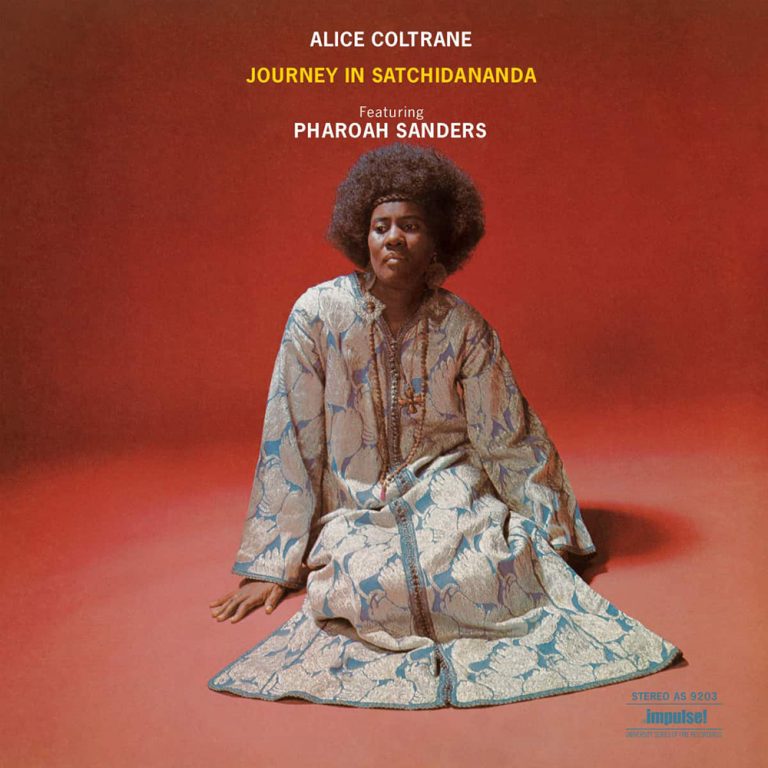In between his work with John Coltrane on “Ascension” (1966), “Meditations” (1966) and “Kulu Sé Mama” (1967), and Alice Coltrane on “Ptah, The El Daoud,” (1970) and “Journey in Satchidananda” (1971), Pharoah Sanders released his own debut album for Impulse! “Tauhid” in 1967.
It proved to be the first in a series of monumental albums for the label. On them, Sanders expanded the language for jazz saxophone with circular breathing, polyphonic overblowing, upper register howls and guttural cries, while his use of African and Eastern percussion allied him to rock groups like Santana and Osibisa.
But despite riding with the musical and cultural zeitgeist, it would take the roaring success of his second album, the now iconic “Karma” (1969), for executives at Impulse!’s ABC Records to embrace Sanders’ genius. As Ashley Kahn recalled in his book “The House That Trane Built – The Story of Impulse! Records,” label head Bob Thiele “had wanted to put Sanders under contract since 1965, but had met indecision and derision.”

But money talks louder than free jazz, and one of Thiele’s last duties for ABC after the success of “Karma” was the signing of Sanders for a multiple album deal with Impulse! Thiele’s visionary and shrewd steering of the label included the distinctive gatefold sleeves with the orange and black spines. “Karma” was one of designer Joe Lebow’s greatest moments for Impulse! with Sanders’ name and album title appearing in a swirling Eastern font above Charles Stewart’s beautiful photograph of a musician deep in meditation.
Inside the gatefold are the words to singer Leon Thomas’ poem “The Creator Has a Master Plan.”
“The creator has a master plan
Peace and happiness for every man
The creator makes but one demand
Peace and happiness through all the land”
Leon Thomas
Thomas had developed his distinctive vocal style, including his trademark yodelling, to match the explorations in sound and free self expression of the avant-garde horn players of the day. It wasn’t long before Thomas would find a kindred spirit in Pharoah Sanders and on “Karma” an album where he could explore the possibilities of his own voice.

“Karma” would be Sanders’ final album where he’d exclusively play tenor saxophone before he expanded his vocabulary with soprano saxophone, bass clarinet, reed flutes and a plethora of other instruments from around the world.
But how he played that tenor, veering between explosive and coarse eruptions of sound and beautifully melodic transcendent passages. As he explained in an interview with The New Yorker in 2020: “I’m always trying to make something that might sound bad sound beautiful in some way. I’m a person who just starts playing anything I want to play, and make it turn out to be maybe some beautiful music.”
His quest for freedom and beauty in his music can be heard from the first bars of an album containing only two tracks. Sanders’ tenor soars above a sea of percussion, bells and shakers, before one of the most famous bass hooks in jazz is delivered in a hypnotic two chord modal pattern by Reggie Workman. Flautist James Spaulding then picks up the lyrical motif that echoes that of “A Love Supreme,” as Sanders passes the melodic baton to the awaiting Leon Thomas. It’s nearly eight minutes before we hear the singer, whose vocal mantra weaves through the meditative musical flow.
Listed as “Light of Love” on the back of the original sleeve, Part 2 begins in a cacophony of celebratory freeform noise before returning to the bells, shakers and healing balm of Leon Thomas’ vocal and that bass hook that sticks like a very welcome earworm. It’s followed by ‘Colors’, a sublime 5 minute outro that captures Pharoah and Thomas at their most uplifting yet mournful.
“Karma” would become one of the most recognised spiritual jazz albums of all time, its power undiminished by familiarity as it continues to inspire new generations; “Pharoah had that vision of what being rooted to such a powerful sound can be,” Shabaka Hutchings told me in 2019. “And that powerful sound is something that liberates the function of being a musician from simply being a musician into being a healer.”
The blistering spiritual force of the saxophonist born Farrell Sanders burned bright until his passing in 2022, aged 81.
Andy Thomas is a London based writer who has contributed regularly to Straight No Chaser, Wax Poetics, We Jazz, Red Bull Music Academy, and Bandcamp Daily. He has also written liner notes for Strut, Soul Jazz and Brownswood Recordings as well as storyboards for short films at RBMA.
Header photo: Giles Petard via Getty Images





